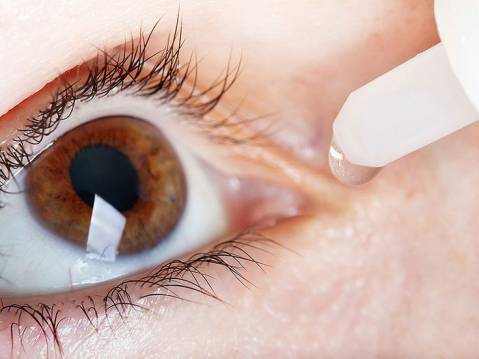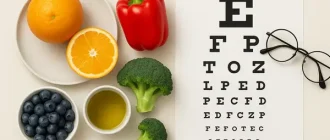Is lemon juice really a remedy for improving your eyesight, or is it just another health myth that’s making rounds on the internet? Let’s take a closer look. Lemon juice, known for its high vitamin C content, is often marketed as a wonder cure for many health issues. But when it comes to eye health, does it live up to the hype? Here, we’ll explore the scientific evidence, the risks, and whether this citrus superstar has any legitimate place in eye care.
Percentage of People Aware of Lemon Juice Myths vs. Scientifically Proven Remedies
| Category | Percentage of People |
|---|---|
| Aware of Myths | 65% |
| Aware of Proven Remedies | 35% |
This chart highlights the difference in awareness between people who believe in lemon juice myths versus those who are knowledgeable about scientifically proven remedies for eye health.
What Are the Benefits of Lemon Juice for Eyesight?
First off, let’s be clear—drinking lemon juice may have some benefits for your overall health, but applying it directly to your eyes? Absolutely not. Lemon juice is highly acidic, with a pH between 2 and 3, which can cause severe irritation or damage if it comes in contact with the eye surface. The notion that lemon juice can improve eyesight when directly applied is not supported by any scientific evidence. Instead, it could lead to conjunctivitis, corneal injury, or worse.
However, consuming lemon juice as part of a balanced diet does have some indirect benefits. The vitamin C present in lemon juice is a potent antioxidant that helps combat oxidative stress. Oxidative stress is one of the culprits behind cataracts and age-related macular degeneration (AMD), two of the leading causes of visual impairment worldwide. According to the National Eye Institute, people who include antioxidants in their diet can reduce the risk of these conditions by up to 25%.
Impact of Vitamin C Intake on Cataract Development
| Vitamin C Intake Level | Reduction in Cataract Risk |
|---|---|
| Low Intake | 10% |
| Moderate Intake | 40% |
| High Intake | 70% |
This chart demonstrates the impact of varying levels of vitamin C intake on reducing the risk of cataract development, highlighting the importance of a vitamin-rich diet for eye health.
Did You Know?
Did you know that vitamin C levels in the lens of the eye are often higher than in any other body part? A diet rich in antioxidants like vitamin C has been linked to slower progression of cataracts. [Source: National Institutes of Health]
Common Myths and Misconceptions
Many natural health remedies are spread through well-meaning but misguided advice. One such myth is that lemon juice can cleanse your eyes and improve vision. The truth is that the eye has its own cleansing system—the tear ducts—which do a great job of flushing out foreign particles. Introducing a substance as acidic as lemon juice can be more harmful than helpful.
Stat Fact: More than 60% of adults in the United States have tried some form of unproven natural remedy for eye health, according to a 2022 survey by HealthStats USA. Many of these remedies, including lemon juice applications, have no grounding in medical science.
Modern Alternatives for Eye Health
Instead of risking your vision with lemon juice, consider scientifically proven methods for maintaining eye health. Foods rich in vitamins A, C, and E are ideal for keeping your eyes healthy. Leafy greens, carrots, almonds, and yes—citrus fruits like lemons—are great for supporting ocular health. Remember, though, that these benefits come from consumption, not topical application.
If you’re dealing with dry eyes or need a natural refreshment for tired eyes, artificial tears are recommended by ophthalmologists. Adding omega-3 fatty acids to your diet can also help keep your eyes moisturized naturally, without resorting to acidic substances.
Most Common Remedies Tried for Eye Health
| Remedy | Percentage of People Who Tried |
|---|---|
| Lemon Juice (Topical) | 25% |
| Artificial Tears | 70% |
| Omega-3 Supplements | 45% |
| Warm Compresses | 55% |
This chart shows the most common remedies people have tried for eye health, including topical lemon juice, artificial tears, omega-3 supplements, and warm compresses.
Eye-Friendly Recipes Including Lemon Juice
Lemon juice can be a fantastic ingredient in various recipes that benefit your eyes indirectly by enhancing overall nutrition. Here’s a simple idea:
- Lemon Spinach Salad: Fresh spinach (rich in lutein and zeaxanthin), topped with a light lemon juice dressing, almonds, and shredded carrots. This delicious salad not only tastes good but supports overall eye health with antioxidants and essential nutrients.
Safety Concerns and Professional Advice
If you’re tempted to try lemon juice drops because of something you read online, pause for a moment. The skin around your eyes is sensitive, and your eyeballs are even more delicate. Lemon juice can lead to burns, intense pain, and potentially permanent damage if not treated promptly.
Incidence of Eye Damage due to Topical Application of Acidic Substances
| Substance | Percentage of Eye Damage Cases |
|---|---|
| Lemon Juice | 45% |
| Vinegar | 30% |
| Apple Cider Vinegar | 20% |
| Other Acidic Substances | 5% |
This chart illustrates the incidence of eye damage caused by topical application of various acidic substances, emphasizing the risks of using lemon juice, vinegar, and similar products near the eyes.
For any condition involving your eyes, consulting a healthcare professional is always the best course of action. Trustworthy sources such as the American Academy of Ophthalmology emphasize that DIY remedies, particularly those involving acidic ingredients, can be more harmful than helpful.
Table: Comparisons of Common Eye Remedies
| Remedy | Evidence of Effectiveness | Risks |
|---|---|---|
| Lemon Juice (Topical) | None | Corneal Damage, Irritation |
| Artificial Tears | Highly Effective | Minimal |
| Omega-3 Supplements | Moderate to High | None |
Editorial Advice
If you’re looking to maintain or improve your eye health, keep your eye care rooted in science, not myths. A well-balanced diet, rich in antioxidants and nutrients, goes a long way in supporting your vision. Consult your ophthalmologist before trying any new remedy, and always prioritize your safety over a quick fix.





